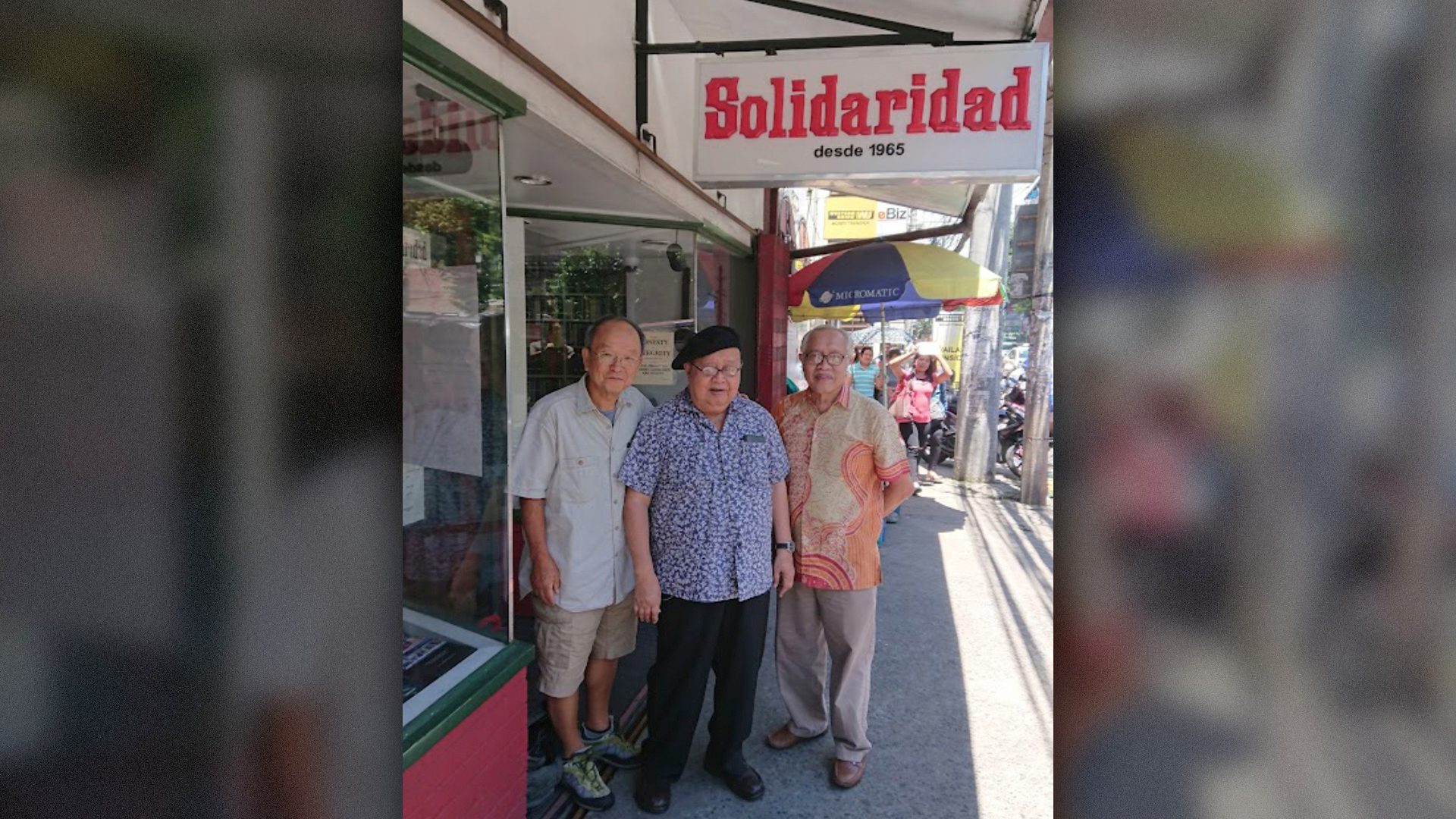Physical Address
304 North Cardinal St.
Dorchester Center, MA 02124
Physical Address
304 North Cardinal St.
Dorchester Center, MA 02124

This is AI generated summarization, which may have errors. For context, always refer to the full article.
I fervently hope that F. Sionil Jose’s Solidaridad bookshop’s tradition as a ‘beacon of culture’ will be preserved and carried forward. And may it grow ever brighter in the years to come, with coffee served with a smile.
TOKYO, Japan – The Solidaridad bookshop is forever intertwined with my memories of Manila. A modest three-story establishment, it never sought grandeur, yet exuded a quiet, dignified presence. On the ground floor, its shelves brimmed with classics and masterpieces from the Philippines and beyond, as well as new, unassuming works from emerging authors. It was a space densely packed with the essence of Philippine intellect.
Whenever I visited Manila, I made it a point to stop by Solidaridad — not only to discover interesting books, but above all to see the proprietor, Francisco “Frankie” Sionil Jose, and his gracious wife, Tessie. Frankie was usually upstairs in his study on the third floor, hunched over his typewriter. He had a round face, round eyes, and he always greeted me with a warm, gentle smile. Tessie, in her soft voice, would bring coffee. From Tokyo, I often brought them small gifts: Japanese osenbei (rice crackers) or packets of instant soba noodles — Frankie’s favorites. He was, I remember fondly, a man of truly remarkable appetite. (READ: National Artist F Sionil Jose dies at 97)

I first came to Manila in 1970 as a graduate student of the University of the Philippines (UP) Diliman, spending a total of seven years there. It was in late 1970, some six months after my arrival, that I first visited Solidaridad and met Frankie. A professor at UP had urged me to call on him, writing me a letter of introduction.
Back then, the bus fare from the UP Diliman campus in Quezon City to Quiapo, Manila was 25 centavos, and from there, a jeepney to Padre Faura in Ermita where the bookshop is located was 20 centavos. A single peso would suffice for the round trip, and a Coke cost only 15 centavos.
Frankie was 24 years my senior — old enough to be my father — yet from the start, he treated me like an extended family member. For more than 50 years, he and Tessie offered me countless acts of kindness, even hosting me overnight at their home in Quezon City several times. He loved the artistry of Japanese craftsmanship. I can still see his study lined with rare Japanese woodworking tools, which he collected, displayed, and admired, murmuring, “Wonderful, aren’t they? One never tires of them.”
Frankie hailed from Pangasinan province in northern Philippines, but during the Japanese occupation, he lived sometimes in Manila, enduring its cruelty and horrors. Yet, after the war, he transcended bitterness and enmity, building friendships with many Japanese — from writers to scholars and beyond. He maintained warm, personal exchanges with them.
Ermita, where Solidaridad was opened in 1965, had been the epicenter of the brutal Battle of Manila in February 1945, which claimed over 100,000 Filipino lives. On some occasions, Frankie would gaze into the distance and say to me, “Takushi, this Ermita was utterly devastated in the war.”
It was precisely there that he sought to plant a “beacon of culture.” He created a space within the shop, welcoming a remarkable range of personalities. It became a crucible of debate and exchange — spirited, even heated at times — a place where intellectuals could clash and flourish.

Frankie passed away on January 6, 2022 at the age of 97. Tessie followed not long after. I hear Solidaridad too will soon pass onto other hands. Such is the way of the world. But I fervently hope that its tradition as a “beacon of culture” will be preserved and carried forward. And may it grow ever brighter in the years to come, with coffee served with a smile. – Rappler.com
(The author is a retired Japanese journalist and a former Manila bureau chief of the Japanese daily broadsheet Asahi Shimbun. He is the head of the UP Alumni Association-Japan chapter. He lives in Tokyo with his wife, Yurie, a former music teacher in the Japanese school in Manila in the seventies.)